![]()
January 2012
This study updates and supplements the ITIC’s June 2011 study of the Muslim Brotherhood. It examines the Muslim Brotherhood in Egypt and other Arab countries in the wake of the past year’s regional uprisings. It deals with the nature of the movement in each country, its relations with the various regimes and evaluates its chances of exploiting regional unrest to its own ends. It also examines the Muslim Brotherhood’s branches in Western European countries and the implications of its activity for both internal European affairs and the Palestinian-Israeli conflict.
The Muslim Brotherhood branch in Tunisia is relatively new. It was established in the 1970s by Rashid al-Ghannouchi and others influenced by the Muslim Brotherhood in Egypt. Even though it was established by individuals influenced by the radical teachings of Sayyid Qutb and Abul A’ala Maududi,[64] the movement’s founders described it as “moderate Islamic” and a development of Islam unique to Tunisia.
The founders of the movement in Tunisia preached for democracy and a kind of Tunisian Islam that recognized political pluralism. They rejected the commonly-held Islamic opinions that Allah was the source of legitimacy, placing it instead in the hands of the people. They also supported dialogue with the Western world and liberal ideas. As in Egypt, the movement’s influence in Tunisia was particularly strong among the urban middle class, university students and the intelligentsia. However, it did not enjoy wide support within the working class. In the summer of 1987 it had an estimated 5,000-6,000 activists. By the mid-1980s the movement had become part of the international Muslim Brotherhood. The Muslim Brotherhood in Tunisia currently operates through the Al-Nahda party, the movement’s local branch. The movement was banned during the Zine Ben Ali regime and its leader, al-Ghannouchi, was exiled to London. After the Jasmine Revolution he returned to Tunisia, where he won a great deal of power.
Milestones in the History of the Muslim Brotherhood in Tunisia[65]
In the 1970s opposition elements emerged which undermined Habib Bourguiba’s regime. They included Communist groups that were brutally oppressed, and Islamic opposition forces that had grown out of the sectors of society which could not integrate into the bureaucratic institutions nurtured by Bourguiba and were dissatisfied with his secular social policy.
At first the authorities encouraged the activity of the Islamic groups, mostly to counterbalance the left wing groups. In time, however, their approach changed. The Muslim Brotherhood branch in Tunisia began with the Islamic Association, an organization established in 1976. To have the organization officially recognized as a party, in 1981 it turned itself into the Islamic Tendency Movement (MTI), led by Rashid al-Ghannouchi. The authorities refused to recognize the movement and even persecuted it.
The fundamental objectives of the party were similar to those of the global Muslim Brotherhood movement: to liberate Muslim lands from foreign influence and establish a Shari’ah-based Islamic state. However, the movement in Tunisia adapted itself to the Tunisian context. Rashid al-Ghannouchi and Abdel Fattah Moro changed some of the party’s positions on various core issues, including Islamic activism, the implementation of Shari’ah law and the status of women.
In numerous statements, interviews and articles, Rashid al-Ghannouchi and other movement spokesmen stressed such issues as the need to fully integrate into Tunisian society and consider the demands of the masses rather than dictate codes of behavior, as well as the recognition of values such pluralism and tolerance, freedom and democracy, not only as part of European culture but of world heritage.
The leaders of the MTI were arrested about six months after its founding, leaving it with almost no chance to build public trust and prove its democratic path. In the summer of 1984, when al-Ghannouchi and his allies were released from prison, a radical faction was formed which called for armed struggle, calling it preferable to a political struggle. After a series of confrontations on university campuses and lower-class sections of the capital, as well as other cities in Tunisia, the MTI leadership was arrested in March 1987 on charges of incitement. Al-Ghannouchi was sentenced to life imprisonment in early September 1987. Thus, the confrontation between the state and the Islamic movement became overt, and the clandestine branch of the MTI prepared itself for a coup to free its leaders.
On November 7, 1987, Bourguiba was deposed in a quiet revolution led by Zine Al-Abidine Ben Ali, then the prime minister. Habib Bourguiba’s fall in November 1987 raised hopes for new relations between the government and the Islamic opposition. At that time, contacts and talks were also being held between the leaders of the Islamic movement and the heads of state, indicating that the authorities were willing to bring the movement closer to the political establishment, perhaps in an effort to moderate its oppositionist character. The MTI reacted positively to Ben Ali’s gestures. After his release in May 1988, Al-Ghannouchi promised that the movement would abandon violence, pledging that it would not build itself into a military or security force. He also expressed his willingness to recognize the Code of Personal Status of 1956, a milestone in the modernization of Tunisia which guaranteed equal rights for women. MTI representatives were invited to take part in formulating the national constitution, which was signed in November 1988.
In December 1988 the MTI renamed itself the Al-Nahda (“Rebirth”) party. However, it was prohibited from taking part in the 1989 elections, and its members ran as independent candidates. According to “official” figures released by the Ben Ali government, the independent candidates received between 10 to 17 percent of the total votes. However, the results made the authorities concerned about the growing power and influence of the Islamic movement.
The relations between Ben Ali and the movement soured after the 1989 parliament elections. In October 1991 the authorities claimed they had exposed an attempt by the movement to stage a coup and topple the regime, launching a systematic campaign to oppress it and remove its leaders from positions of political influence. Thousands of its activists were arrested and most of its leaders, including Rashid al-Ghannouchi, went into exile. The movement was eradicated from Tunisia’s political landscape, even though the authorities kept looking for any sign that it might be resuming its operations.
The Transformation of the Al-Nahda Party into a Major Political Force
On March 2, 2011, after the Jasmine Revolution, the Tunisian interior minister legalized Al-Nahda and gave it permission to operate as a political party. The movement was thus able to take part in the parliament elections held in October 2011. The Al-Nahda party won the elections with 41 percent of the parliament seats, changing from the strongest opposition force into the leading government force. In their public statements, the party leaders portray themselves as representatives of moderate Islam.[66] However, it remains to be seen whether the liberal, moderate image of the Al-Nahda party will stand the test of time, and whether it will continue its moderate democratic line after winning the elections and achieving political power.
Profile of Rashid al-Ghannouchi
Rashid al-Ghannouchi, leader of the Tunisian Al-Nahda movement, was born in southeast Tunisia in 1941. As a youth he attended traditional education institutions. He did not speak French and thus found it difficult to integrate into Tunisia’s higher education system. He went to study in Syria, where he completed an undergraduate degree in the humanities. During his studies he was influenced by the Muslim Brotherhood in Egypt, particularly by Sayyid Qutb.
After his return to Tunisia, he worked as a high school teacher and also wrote articles for Islamic newspapers. He was one of the founders of the Islamic Tendency, which in due course renamed itself to Al-Nahda (“The Rebirth”), which espoused the introduction of appropriate religious themes into Tunisia’s public life. He condemned the use of violence, arguing that political change had to be effected through nonviolent means. He was arrested by the authorities for his activities and served a prison sentence in 1981-1984. He was also given a life sentence in 1987. However, he was released by Ben Ali after the latter’s rise to power, and even had contacts with the president in an attempt to achieve official recognition for the movement. However, the deteriorating relations between the movement and the authorities after 1991 derailed the talks and al-Ghannouchi, who was persecuted by the authorities, went into exile in Britain, where he continued criticizing the regime.
Rashid al-Ghannouchi is an original Islamic thinker. He believes in the synthesis between Islam and modern life, and its adaptation it to Tunisia. He is in favor of multipartisan politics and the protection of human rights. In November 1995 he and a group of non-Muslim exiles, including former Prime Minister Muhammad Mzali, issued a joint statement calling for democracy in Tunisia by electing parliament representatives to represent a variety of opinions and political parties.
From his exile in London, Al-Ghannouchi has often talked about the need for an open dialogue with the West. He rejected Samuel Huntington’s idea of “clash of civilizations” as well as the Al-Qaeda-style jihadist ideology. However, his rhetoric became increasingly anti-Western and anti-Zionist in the few years before he returned to Tunisia. After the Jasmine Revolution, Al-Ghannouchi was permitted to return to Tunisia from his exile in Britain. He returned in January 2011, welcomed by about one thousand people. Since the Al-Nahda party won the elections, he is likely to play an important role in the new political map of Tunisia.
![]()
Read the other sections here:
1. The Muslim Brotherhood in the Arab World and Islamic Communities in Western Europe: an overview
2. The Muslim Brotherhood in Egypt
3. The Muslim Brotherhood in Syria
4. The Muslim Brotherhood in Jordan
5. The Muslim Brotherhood in Algeria
6. The Muslim Brotherhood in Sudan
7. The Muslim Brotherhood in Saudi Arabia
8. The Muslim Brotherhood in The United Arab Emirates
9. The Muslim Brotherhood in Lebanon
10. The Muslim Brotherhood in Morocco
11. The Muslim Brotherhood in Tunisia
12. The Muslim Brotherhood in Europe
![]()
Notes:
[64] Abul A’ala Maududi (1903-1979) was one of the 20th century’s first and most important ideologues of radical Islam. He was the founder of the Jamaat-e-Islami party (“The Islamic Group,” the Urdu version of the Arabic Al-Jama’ah al-Islamiyya). The party, founded in Lahore in August 1941, is the oldest and most prominent in Pakistan. Its worldview is similar to that of the Muslim Brotherhood, yet it is more radical, since its founder was the first Islamic political thinker who rejected the values of Western civilization (the new Jahiliyya) (with the exception of science and technology), claiming that they were incompatible with the values of Islam. The worldview was further developed by Sayyid Qutb, a major influence on the Muslim Brotherhood’s jihadist school of thought. Qutb argued that instead of modern Arab and Muslim states, it was necessary to establish an Islamic state with Allah as the only sovereign (hakimiyya).
[65] Our sources for this section include Ghassan Salamé, ed., Democracy without Democrats? The Renewal of Politics in the Muslim World, I.B. Tauris & Co Ltd. NY 2001; Michel Abitbol, Daniel Zisenwine, From Colonialism to Nationalism: Tunisia, Algeria, Morocco, Open University Press (in Hebrew).
[66] A discordant statement made by Hamed Jebali, the secretary general of the party. On November 13, 2011, a rally was held in eastern Tunisia, attended by a Hamas representative. Jebali said he hoped that a Caliphate would be established soon, and that the liberation of Tunisia would also result in the liberation of Jerusalem (tunisia-live.net). Another discordant note was Ismail Haniya’s visit to Tunisia (January 3-8, 2012), when. Al-Nahda Party organized
anti-Israeli events where anti-Semitic slogans were shouted.



 RSS
RSS

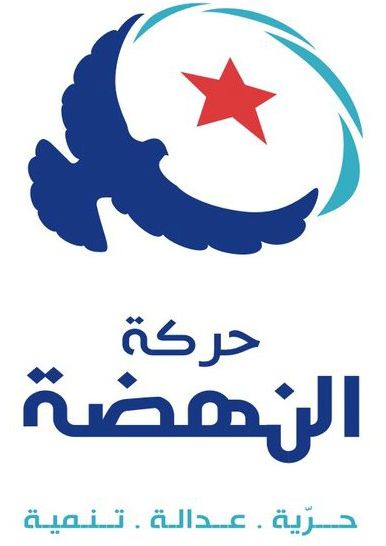
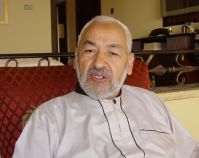
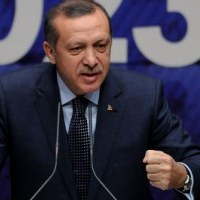
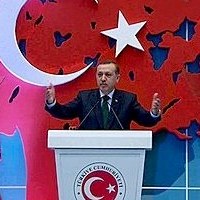

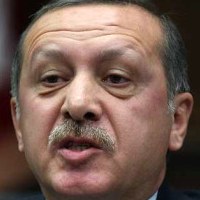
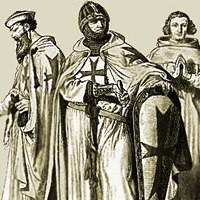




[…] 11. The Muslim Brotherhood in Tunisia […]
[…] 11. The Muslim Brotherhood in Tunisia […]
[…] 11. The Muslim Brotherhood in Tunisia […]
[…] 11. The Muslim Brotherhood in Tunisia […]
[…] j) Tunisia […]